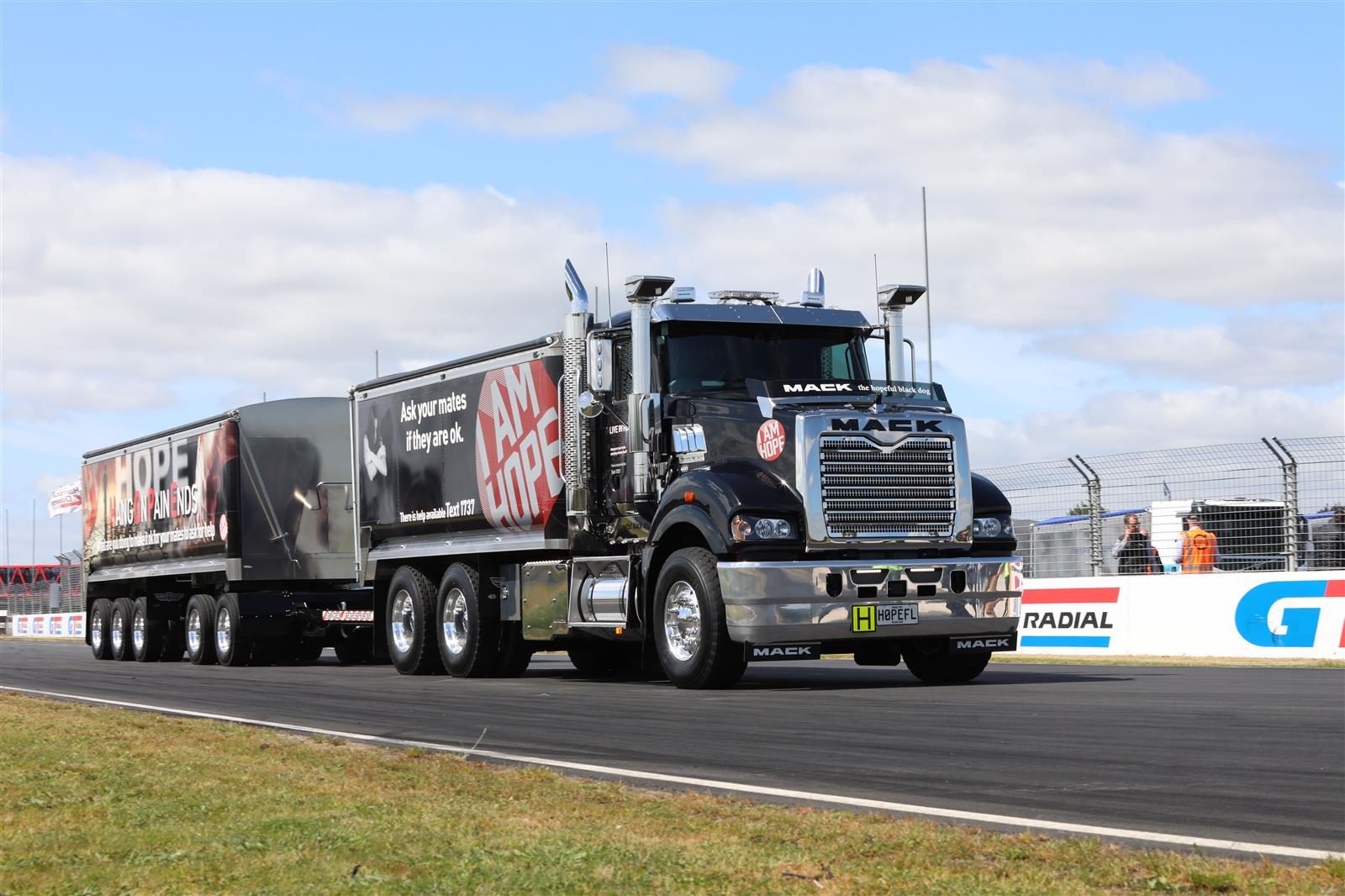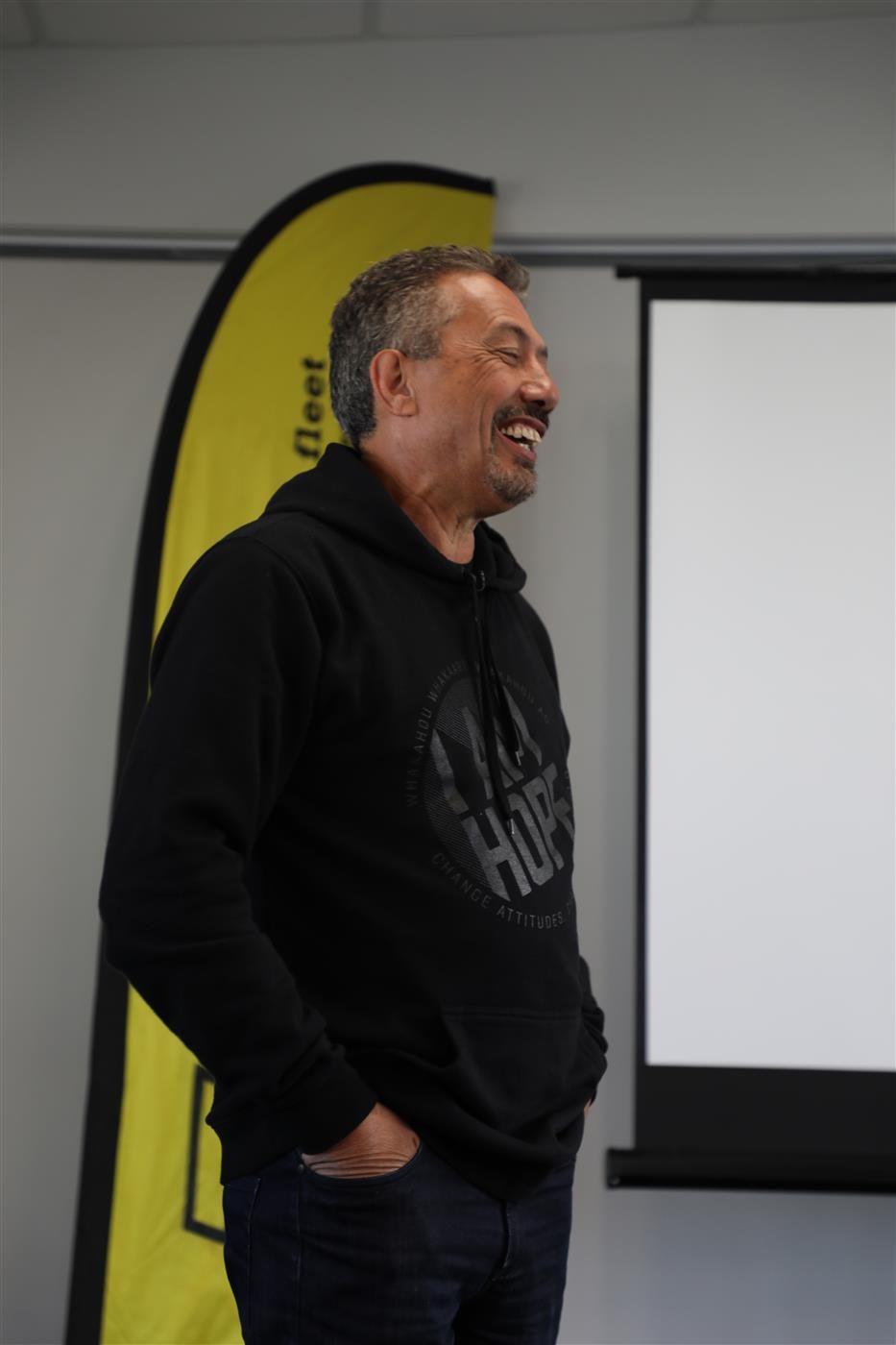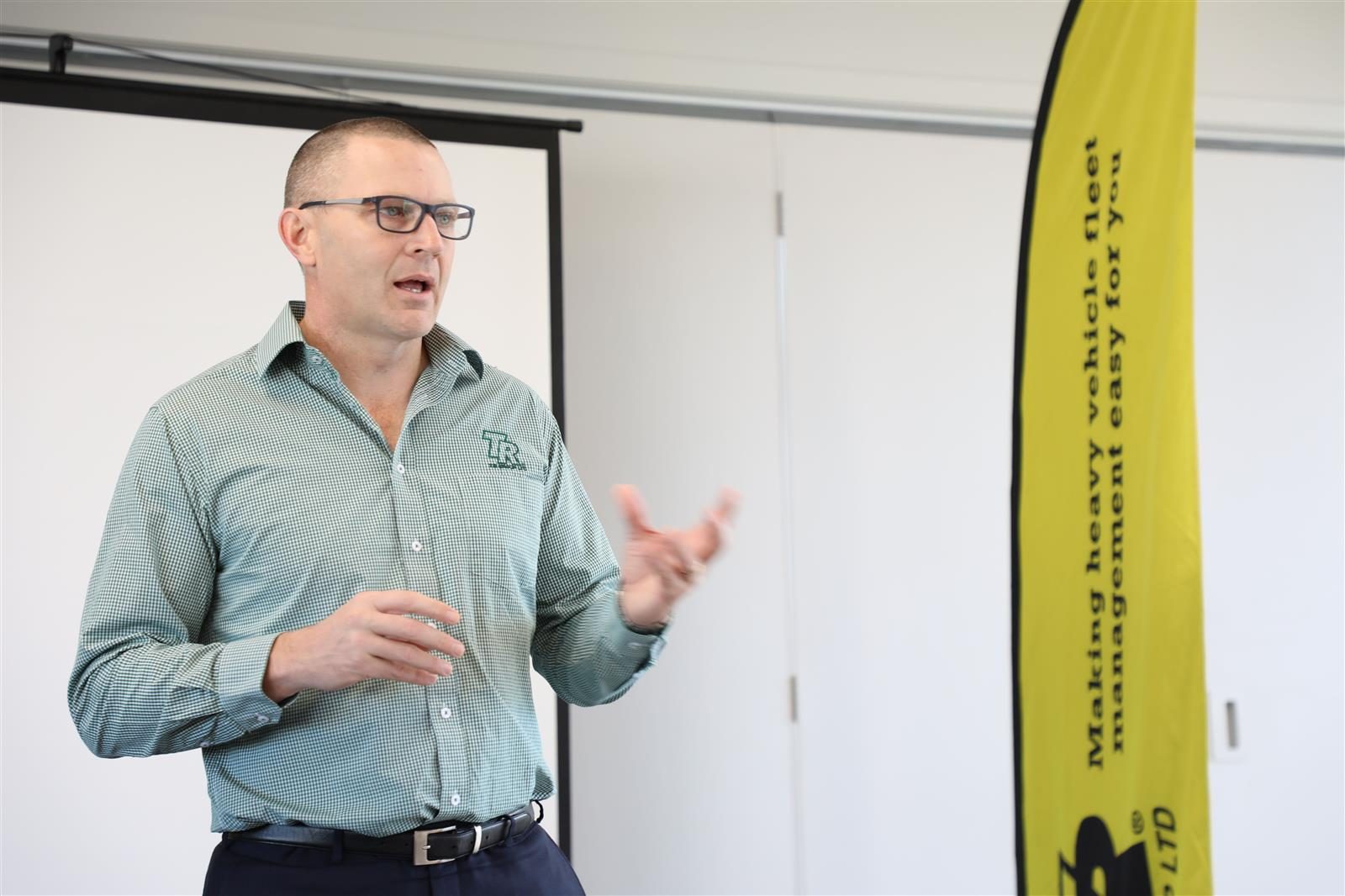
Clear and spectacular call to support your workmates, friends, and family.
Earlier this year TR Group, in conjunction with Mike King‘s I Am Hope charity, set out to create a vehicle to raise awareness around the issue of depression. Tying together the symbol of the Mack bulldog and ‘the black dog‘ term for depression, the idea of Mack the Hopeful Black Dog was born. Earlier this week, the vehicle was handed over to Winstone Aggregates at Hampton Downs.
Having made various appearances over the past couple of months, the time has come for the eye-catching Super Liner to be put to work – not simply hauling, but also using its time on the road to spread its important message. The messaging on the truck was given careful consideration and this is where Mike King‘s expertise helped to make sure it would be effective.

Mike King addressed attendees at the handover in his engaging and inclusive style, explaining the importance of engaging with your workmates.
“For a long time messaging around mental health has been about encouraging people struggling to ask for help, but, although well intended, this is largely ineffective and misguided. The messaging on our truck is aimed at the friends and loved ones,” said Brendan King, group general manager for TR Group.
Dean East, Winstone Aggregates national fleet performance and development manager, commented on the Mack‘s powerful impact, which he experienced during the shakedown period prior to the official handover.
“The effect on the people at the site was amazing. This will be nothing but a positive for all people who come into contact with the truck and the meaning behind the concept. It is a great conversation starter.”

TR Group general manager Brendan King addressed the audience and explained the reasoning behind their desire to create greater discussion on the issue of mental health.
Mike King agreed that the conversation, whether it be in a personal or professional environment, needs to change. “The current messaging is not working; 80% of men (who account for 73% of suicides) who have suicidal thoughts never ask for help – ever. When you ask them why, it‘s because they‘re worried about what other people will think and say and about how that info will affect them going forward. In other words, they‘re worried about us stigmatising them, talking about them.
“The messaging should be to those who aren‘t struggling, and asking them what they are doing to make it okay for those who are struggling to ask for help. The fact of the matter is none of us is doing enough,” he said.
“That truck is going to change people‘s lives. Those messages on that truck are going to change people‘s lives. That‘s not just a truck, that‘s a symbol that things are changing. That truck is going to give people permission to change, and I think that‘s the biggest step forward in mental health we‘ve ever had.”





